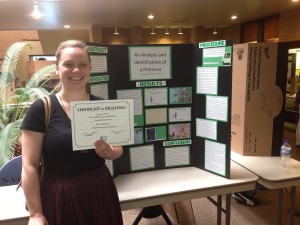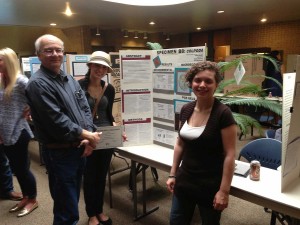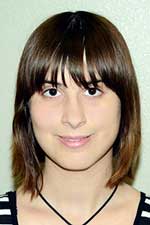
By Grant Rutherford/reporter
Students and teachers deemed the new experimental approach to a class designed for biology majors on NE Campus last year a success.
“This class was exceptionally interesting,” said second-year student Neel Bhatt. “Being a curious student, I think it actually made me learn a lot more about biology.”
The number of students passing the lab course increased by about 8 percent last fall and by about 15 percent in spring compared to students in the traditional course.
During that time period, instructors also lowered their withdrawal rate by about 17 percent.
Of those who completed the survey at the end of the course, about 7 percent of students agreed that the course challenged them intellectually, showing evidence of the instructor’s success. In addition, a majority of the students agreed the course paid off in their higher grades.
Students collected a water sample from a nearby creek at the beginning of the semester. From that point, the sample could have contained four organisms: algae, bacteria, fungi or protozoa.

“The experiments we did helped us to learn more and more about our sample, and I found that these microorganisms are interesting to know about,” Bhatt said.
Four sections of the lab portions for Majors Biology 1406 began the semesterlong experimental lab last fall.
“I would recommend the research lab for people that are good at writing papers. The traditional lab is more test-based,” said Michael Sibley, a third-year NE student. “If I had known that before, I would have taken the traditional lab because I am better at taking tests. If you’re bad at writing papers though, it’s good to write more of them to get better at it.”
A long-term goal of the experiment is to build a body of work with the student research journals and the experimental results that the following semester’s students can reference and build upon.
“I wasn’t sure about my major, but now I’m pretty sure that I want to take biology and spend the rest of my life doing it,” Bhatt said. “This project helped me a lot.”
The class and research lab are available for registration to any student interested in the fall and spring semesters.
As part of their classwork, the students ended the semester by creating posters detailing their experiments. They set them up in the hallway and explained their projects to all interested passers-by.
“I enjoyed the poster session,” said Grace Kafer, a second-year student. “I was able to look at the other posters of groups who studied the same organisms as I did as well as other ones and learn about their different procedures and protocols.”
NE biology professor Kristin Byrd said she was proud of the work her students did in the spring.
“I know that this project helped them to understand what it’s really like to be a biologist and research organisms,” she said. “I hope more students look into biology.”




























